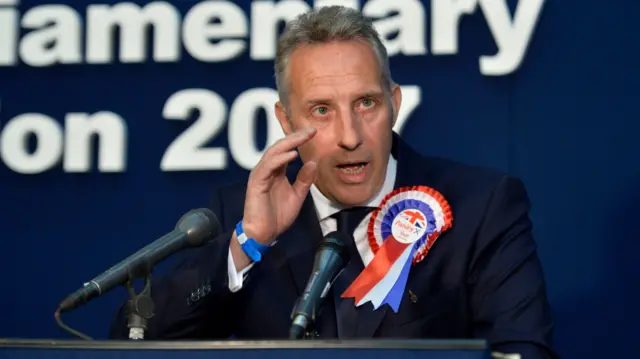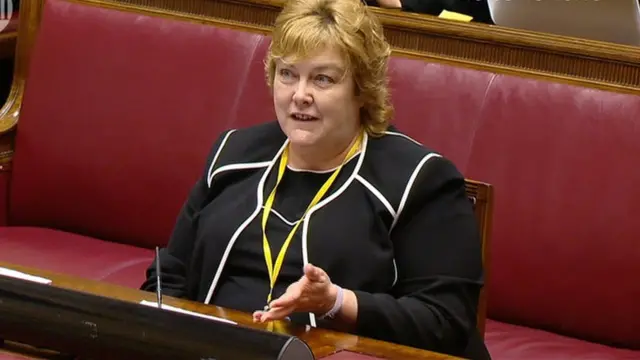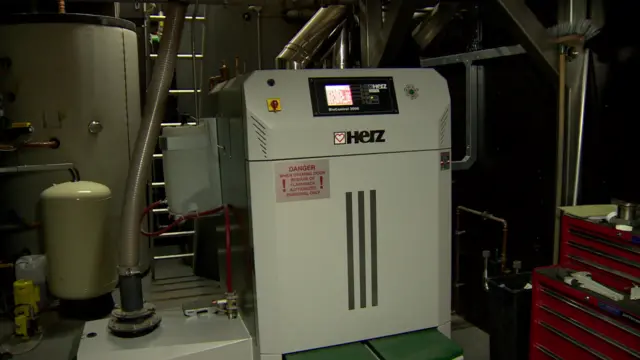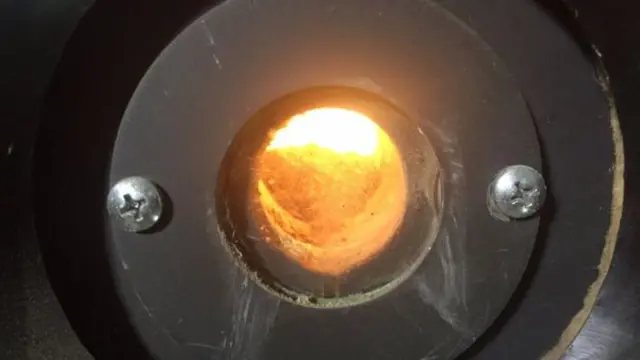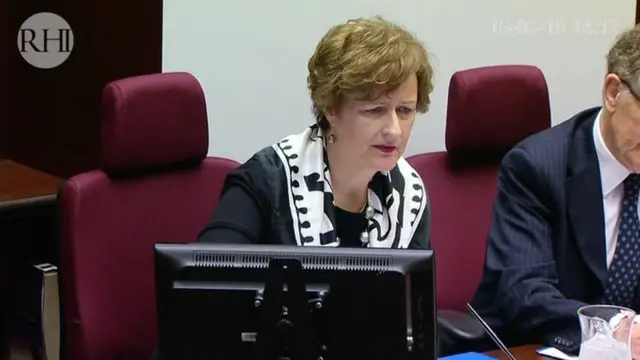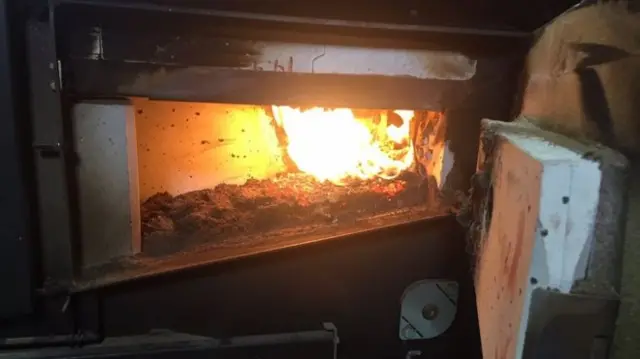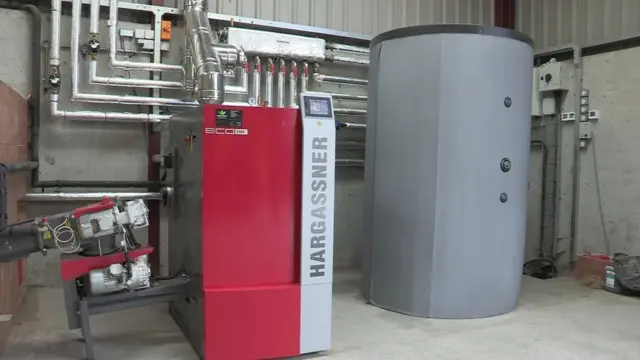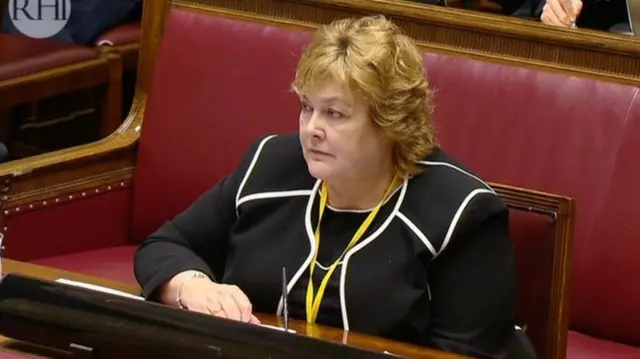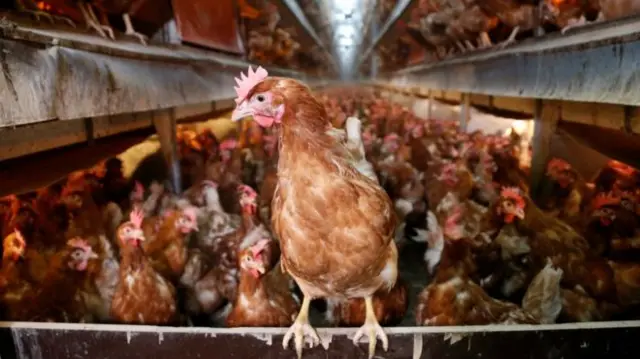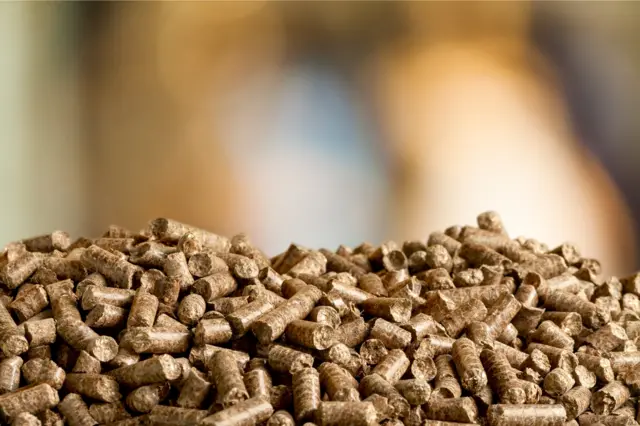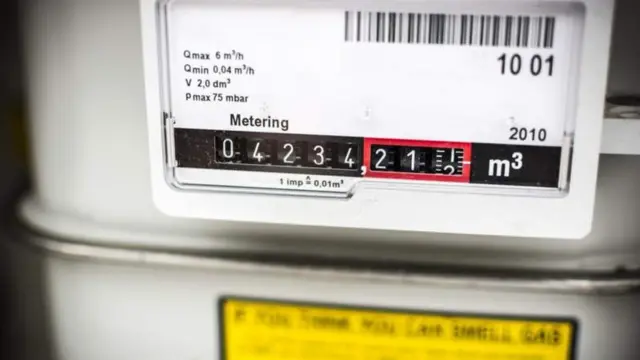That's all for today...published at 17:20 GMT 15 March 2018
It's been a most enlightening afternoon at the inquiry.
Sir Patrick assures Ms Clifton that she shouldn't need to return, but we'll be seeing one of her Ofgem colleagues - Dr Edmund Ward - in the hotseat tomorrow.
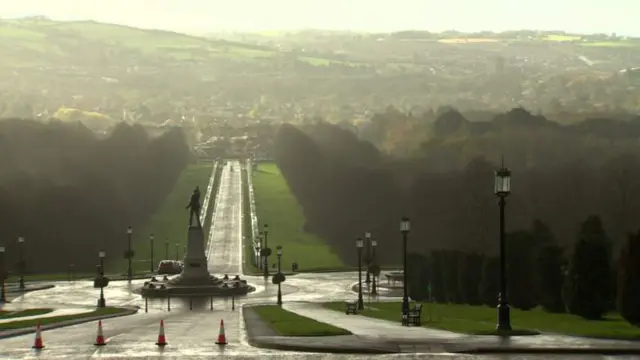 Image source, RHI Inquiry
Image source, RHI InquiryHe's already experienced a witness session in the Senate chamber, during the Northern Ireland Assembly's Public Accounts Committee hearings over the RHI debacle in October 2016.
Join us tomorrow from 09:45 for more live coverage, and have a great evening.

